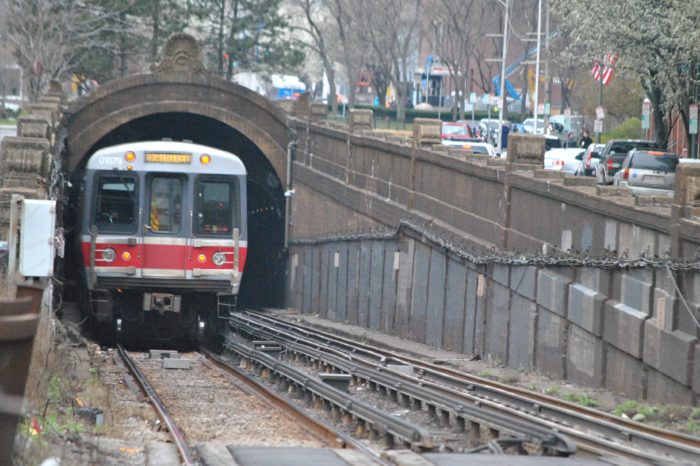New Study Reveals MBTA’s Reckless Financial Derivatives
Read coverage in The Bond Buyer: “MBTA Lost $236M in 15 Years over Swaps, Report Says.”
MBTA has paid Wall Street some $236 million in interest, millions more in fees after gambling on interest-rate swaps despite state auditor’s warning
BOSTON – The MBTA built up a large exposure to financial derivatives and had to pay an estimated $236 million in interest on synthetic swaps for fiscal years 2001 to 2015, according to a new study published by Pioneer Institute.
“The T projected $20.4 million in swap interest losses for fiscal 2015 alone,” said Pioneer Institute Senior Fellow on Finance Iliya Atanasov, who authored “The Reckless Cost of MBTA Financial Derivatives.”
To offset the risk of wild fluctuations in their interest payments on variable-rate bonds, borrowers frequently enter into swap agreements with third parties. The swap counterparty agrees to pay a variable rate identical or similar to the interest on the bonds, while the borrower pays the counterparty a fixed interest rate.
Financial derivatives are rife with risk and were among the most significant contributors to the global financial crisis of 2008. Massive counterparty risk is among the hidden pitfalls of interest-rate swaps. The MBTA’s swap counterparties are global investment banks. The 2008 crash ended Bear Stearns, Lehman Brothers and Merrill Lynch as independent financial powerhouses.
In a 2008 report, the state auditor revealed that the MBTA had had over $1.6 billion in notional principal exposure to interest-rate swaps. But the T blatantly rejected the auditor’s recommendations to end its swap misadventures and reduce its risk. After MBTA swap counterparties went out of business during the crisis, the T extended its derivatives exposure. Since then, global financial debt has increased 22 percent, to $45 trillion, adding to the fragility of the system.
Last year, the MBTA suggested replacing Deutsche Bank as a swap counterparty after the firm’s credit rating was cut, which triggered a termination clause on some swaps. The T petitioned its Financial and Management Control Board to allow them to replace Deutsche Bank with Barclays, whose credit had also been downgraded but to a notch higher than Deutsche Bank’s.
According to bond disclosures, the MBTA was expected to have about $550 million in variable-rate bonds at the end of fiscal 2015, which could exacerbate the embattled agency’s budgetary problems. Most of that is pegged to current municipal borrowing rates, while a smaller proportion tracks the Consumer Price Index. Derivatives further inflate the MBTA’s debt-service costs and add to the complexity and fragility of the authority’s impaired balance sheet.
“The solution for the variable-rate debt is simple,” Atanasov added. “Replace it with long-term fixed-rate callable bonds.” Although some of the T’s adjustable-rate debt is not callable, even that portion could be repurchased at market if necessary.
About the author
Iliya Atanasov is Pioneer’s Senior Fellow on Finance, leading the research tracks on pension portfolio management, infrastructure and municipal performance.
Iliya received his PhD in Political Science from Rice University and is a former Presidential Fellow at the University. He also holds BAs in Business Administration,
Economics and Political Science/International Relations from the American University in Bulgaria.
About Pioneer
Pioneer Institute is an independent, non-partisan, privately funded research organization that seeks to improve the quality of life in Massachusetts through civic discourse and intellectually rigorous, data-driven public policy solutions based on free market principles, individual liberty and responsibility, and the ideal of effective, limited and accountable government.



